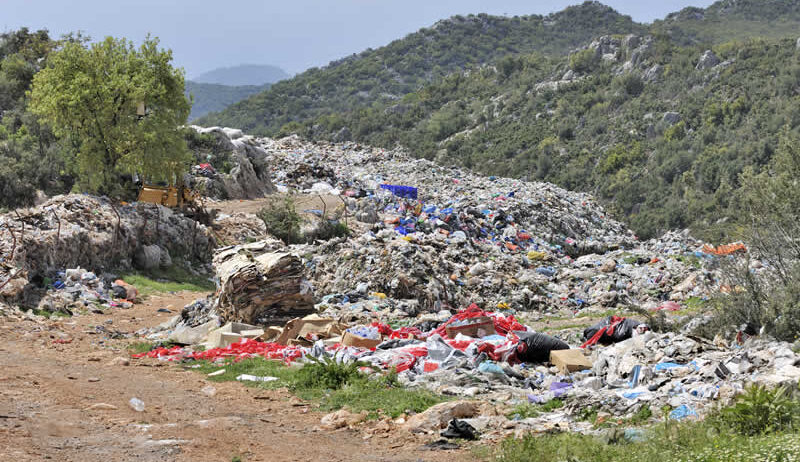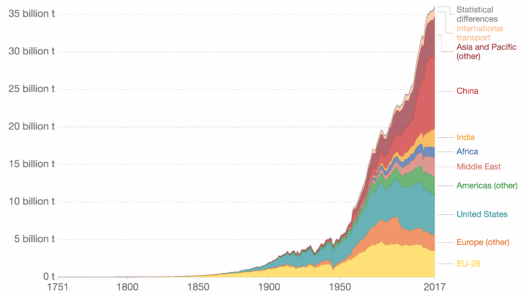Landfills are an immutable aspect of modern waste management, yet they possess an insidious potential to exacerbate global warming. How does this happen, you may wonder? While they serve as repositories for excessive waste, landfills are not merely passive structures; they actively contribute to climate change through a series of complex processes and chemical reactions. This treatise seeks to unravel the intricacies of how landfills contribute to global warming, illuminating the ramifications of unchecked waste disposal.
To commence, it is pivotal to understand the fundamental dynamics at play within a landfill. When organic materials, such as food scraps and yard waste, are meticulously deposited into a landfill, they begin to decompose through various biological, physical, and chemical processes. A significant portion of this decomposition occurs anaerobically, meaning it takes place in the absence of oxygen. This process is primarily facilitated by microorganisms that thrive in such conditions. However, the byproducts of anaerobic digestion are potent greenhouse gases, predominantly methane (CH4).
Methane is a formidable adversary in the battle against global warming. It possesses a global warming potential that is over 25 times greater than that of carbon dioxide (CO2) over a century. This heightened potency raises an eye-opening question: What are the long-term impacts of unmitigated methane emissions on our atmosphere? As methane is released into the atmosphere from landfills, it significantly contributes to the greenhouse effect, thereby raising global temperatures and hastening climate change.
Yet, landfills do not solely release methane. The decomposition of organic matter also yields carbon dioxide, albeit in lesser quantities. It is crucial to recognize that the combustion of waste, particularly fossil fuels, solely contributes to CO2 emissions. As more waste is produced and landfills continue to fill up, the exacerbating cycle of greenhouse gas emissions becomes painfully apparent. The challenge lies not only in managing existing landfills but also in addressing the proliferation of waste generation.
One might ponder the ramifications of leaky landfills—an issue that is often overlooked in discussions about climate change. Leachate, a toxic liquid formed when water percolates through waste, can escape from landfills and seep into the ground and waterways. Aside from polluting local ecosystems, leachate can also exacerbate methane emissions by creating anaerobic conditions further in the landfill. Thus, communities adjacent to landfills face additional environmental health hazards, from deteriorating water quality to toxic soil conditions.
Moreover, the climate implications of leaky landfills extend beyond localized impacts. As leachate contaminates the air and water systems, it can destabilize aquatic ecosystems, leading to the displacement of species and loss of biodiversity. Such disturbances exacerbate the unintended consequences of climate change, creating vicious cycles of environmental degradation that feed into the broader narrative of global warming.
Let’s not forget the role of human behavior in the equation. The average American generates approximately 4.4 pounds of waste per day. With a burgeoning population and an ever-increasing appetite for consumer goods, waste production shows no signs of abating. What if the inhabitants of Earth realized that every piece of waste carries profound environmental implications? The challenge lies within changing mindsets and behaviors toward waste disposal. Without a paradigm shift in how waste is conceived and managed, landfills will persist as ticking time bombs of greenhouse gas emissions.
Despite the daunting nature of the challenge, there are actionable steps that can mitigate landfill emissions and their consequences. Implementing recycling and composting initiatives could significantly attenuate the volume of organic waste deposited in landfills. By diverting food scraps and yard waste into composting systems, we can drastically reduce methane emissions. Innovative technologies also pave the way for capturing methane emissions and converting them into useful energy, turning a toxic byproduct into a viable energy source.
Furthermore, legislative avenues should be explored to enforce stricter regulations on landfill operations. Landfill gas management systems and monitoring leachate are imperative to minimize greenhouse gas emissions. Public awareness campaigns can elevate community knowledge about responsible waste disposal and the importance of reducing, reusing, and recycling. No initiative is too small; changing consumption patterns and encouraging sustainable practices can lead to positive environmental outcomes.
Ultimately, every action counts. This collective responsibility unveils a question that necessitates introspection: What role are we willing to play in curbing the influence of landfills on climate change? With the unsettling reality of global warming looming large, now is the time to confront the complexities of waste management head-on. The challenge before us is cataclysmic, yet it is not insurmountable. We can forge a sustainable path forward, armed with knowledge, determination, and a commitment to nurturing our planet for future generations.
In summation, understanding the interplay between landfills, leaky ecosystems, and climate change provides an imperative framework for action. By dissecting the processes that lead to greenhouse gas emissions, we can construct effective strategies for waste management, leading to a more sustainable future. The fate of our planet may hinge on our ability to address this intricate nexus of waste and climate change, transforming our collective daunting challenge into a robust opportunity for ecological resilience.








